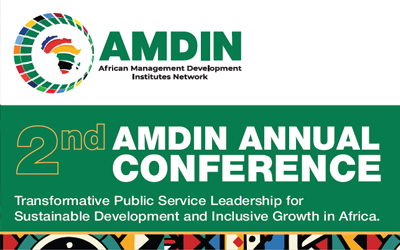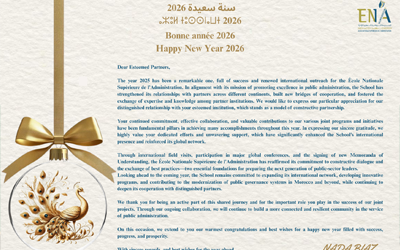The NSG hosted a ‘pedagogy and case studies’ workshop in Pretoria on the 25th and 26th of October 2021. The workshop was attended by seventy participants from the NSG, African Management Development Institutes Network (AMDIN), local universities, National Departments and Provincial representatives from Premiers Offices and Training Academies. AMDIN participants were from several African countries from all regions of the Continent, including Namibia, Botswana, Lesotho, Mozambique, the Democratic Republic of Congo, Ghana, Kenya, and Zambia. The workshop arises from a commitment towards broader exchange and dialogue on state capacity building and the different modalities for education, training and learning within the public sector. Central to the deliberations during the workshop was the imperatives of establishing African and local approaches to developing and utilising practice case studies for capacity building.
In opening the workshop, Principal Ngcaweni emphasised the importance of a partnership approach to capacity building and the imperatives of continuous learning and innovation in capacity building. During the initial session, Professor. Martin Morgan Tuuli, Deputy Rector at the Ghana Institute of Management and Public Administration (GIMPA) outlined how his organisation has engaged with the overall approach to curriculum and the use of case studies. He provided that GIMPA will develop a case studies centre to encourage their use within the institution and to produce local cases studies. In the same session. Dr Maja from the NSG emphasised the imperatives of developing a curriculum that responds to local realities and embodies a decolonial orientation and commitment to social justice.
The workshop benefited from a wide variety of inputs from resource persons from across the world. Participants engaged with experiences from Canada, Singapore, France, Brazil, and Kenya. Each of the international resource persons outlined their institutional approaches towards utilising case studies and emphasised the importance of developing and using cases relevant to local contexts. Participants engaged with these experiences and the value of case studies for training and broader learning in government. It was recognised that case studies are developed for a wider variety of purposes and that there needs to be much greater interchange and collaboration to document experiences for learning and sharing in government.
The workshop also provided the NSG with the opportunity to share the experiences with developing the research case studies published in the collection titled: Public Administration Challenges: Cases from Africa. During the deliberations, participants emphasised the importance of much deeper exchange and collaboration on the development and utilisation of cases. During the closing session, Dr Maja reaffirmed the commitment of the NSG in working with others in the development and utilisation of case studies. Furthermore, AMDIN members committed to more significant interactions and exchanges on case studies and other pedagogical approaches to capacity development. The workshop was arranged by the Directorate responsible for Africa Affairs and was assisted by the European Union Support Programme. The entire workshop was funded by the European Union Capacity Building programme under key result area four (4).



